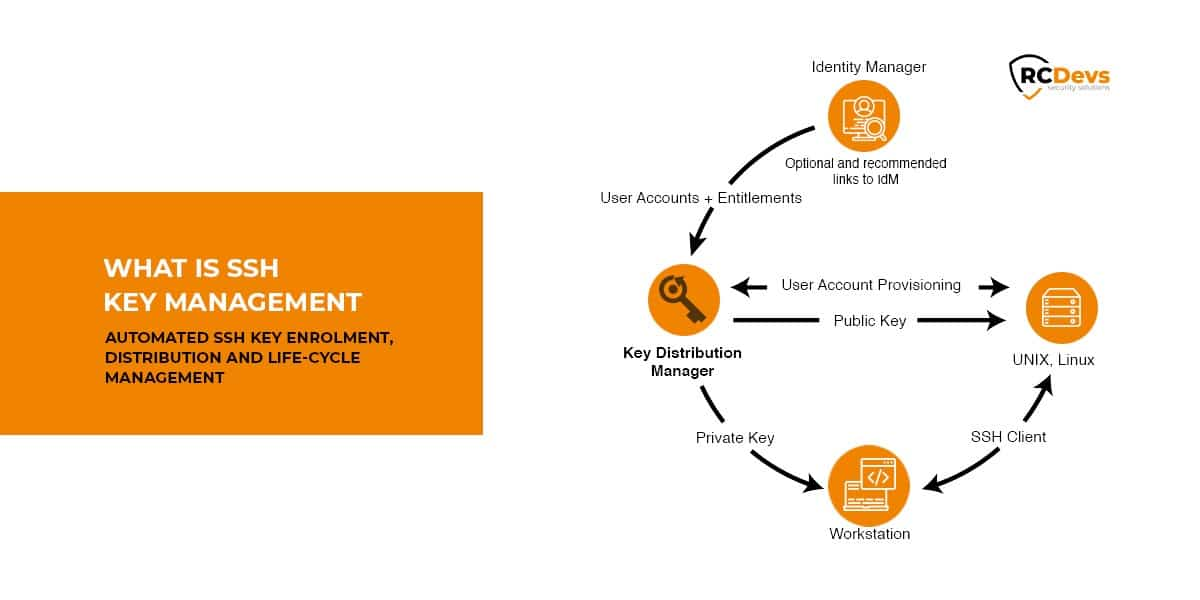Mastering SSH Key Management: A Guide To Securing Your Systems
SSH key management is one of the most crucial elements in today’s cybersecurity landscape. As businesses increasingly move toward remote work and cloud-based systems, ensuring secure communication between devices has never been more important. SSH keys are the backbone of this secure communication, but if they’re not properly managed, they can create serious security risks that could compromise your entire network.
Let’s face it—SSH key management isn’t just a technical detail; it’s a lifeline for protecting your organization. Misconfigured or poorly managed SSH keys can open the door to unauthorized access, data breaches, and compliance nightmares. In this guide, we’ll break down why SSH key management matters, share actionable strategies to boost your security, and give you the tools to take control of your network’s safety. Whether you’re a system admin, IT pro, or cybersecurity enthusiast, this is your roadmap to mastering SSH key management.
Here’s what we’ll cover:
Read also:Lets Talk About Creating Meaningful Content Together
- What is SSH Key Management, Anyway?
- Why SSH Key Management is a Big Deal
- Smart Strategies for SSH Key Management
- How Automation Can Save You Time and Trouble
- Protecting Your SSH Keys Like a Pro
- Staying Vigilant with Monitoring and Audits
- Staying Compliant in a Regulated World
- Mistakes to Avoid in SSH Key Management
- Top Tools for SSH Key Management
- The Future of SSH Key Management
- Wrapping Up and Your Next Moves
What is SSH Key Management, Anyway?
SSH (Secure Shell) is the go-to protocol for secure communication over networks that might not be so secure. Think of SSH keys as the digital bouncers at your favorite nightclub—they decide who gets in and who stays out. These keys authenticate users and systems, often replacing passwords entirely. Proper SSH key management means making sure only the right people or systems have access to your sensitive data and infrastructure.
SSH keys come in pairs: a private key that stays secret and a public key that can be shared widely. The public key encrypts data, while the private key decrypts it. This setup ensures no sensitive info is floating around the network. But managing these keys effectively isn’t just about creating them—it’s about generating, distributing, revoking, and monitoring them to keep your network secure.
Why SSH Key Management is a Big Deal
Here’s the truth: SSH key management isn’t optional—it’s essential. Without it, your SSH keys could become a liability, leaving your network vulnerable to breaches and compliance violations. Here’s why SSH key management should be at the top of your priority list:
- Stopping Unauthorized Access: Poorly managed SSH keys can let the wrong people into your systems, giving them access to sensitive data.
- Meeting Compliance Standards: Many industries have strict rules about data security and access control. Good SSH key management helps you stay on the right side of those regulations.
- Reducing Security Risks: By following best practices, you can drastically cut down on the chances of breaches and data leaks.
- Saving Time and Resources: Automation tools can simplify the SSH key management process, freeing up your team to focus on other critical tasks.
Smart Strategies for SSH Key Management
If you want to keep your SSH keys secure and effective, you’ve got to follow some tried-and-true practices. Here’s how to do it right:
Create Strong, One-of-a-Kind Keys
The foundation of secure SSH key management starts with strong, unique keys. Here’s how to build them:
- Choose a key length of at least 2048 bits for RSA keys, or opt for ED25519 if you want better performance and security.
- Avoid using the same key across multiple systems. If one key gets compromised, all those systems are at risk.
- Add an extra layer of protection by securing your private keys with strong passphrases.
Set an Expiration Date for Your Keys
Just like milk, SSH keys can go bad over time. Setting expiration dates ensures that outdated or compromised keys don’t linger in your system. Here’s how to manage key lifecycles:
Read also:Ellie Nova The Voice Thatrsquos Taking The World By Storm
- Develop a clear policy for key creation, usage, and revocation.
- Periodically review and update your SSH keys to make sure they’re still secure and relevant.
- Automate the process to expire keys automatically after a set period.
How Automation Can Save You Time and Trouble
Managing SSH keys manually can be a headache—and it’s easy to make mistakes. Automating the process makes life easier, reduces errors, and keeps your keys in check. Here’s how to get started:
- Use configuration management tools like Ansible, Puppet, or Chef to automate key deployment and management across your systems.
- Invest in centralized key management systems to keep everything organized and consistent.
- Write scripts in Python or Bash to handle repetitive SSH key tasks, saving your team hours of work.
Protecting Your SSH Keys Like a Pro
SSH keys are only as secure as the safeguards around them. Here’s how to keep them out of the wrong hands:
- Store private keys in secure locations, like hardware security modules (HSMs) or encrypted file systems.
- Limit access to private keys by setting strict file permissions and access controls.
- Monitor for any unauthorized attempts to access or modify your SSH keys.
Staying Vigilant with Monitoring and Audits
Regular monitoring and auditing are key to ensuring your SSH keys are being used correctly and securely. Here’s how to stay on top of things:
- Set up logging and monitoring solutions to track SSH key usage and spot suspicious activity.
- Conduct regular audits to verify that all SSH keys are properly managed and up-to-date.
- Create a process for investigating and responding to potential SSH key-related security issues.
Staying Compliant in a Regulated World
Many industries have specific rules about data security and access control. Your SSH key management practices need to align with these regulations. Some of the big ones include:
- General Data Protection Regulation (GDPR)
- Payment Card Industry Data Security Standard (PCI DSS)
- Health Insurance Portability and Accountability Act (HIPAA)
By following these standards, you can protect sensitive data and avoid costly fines and penalties.
Mistakes to Avoid in SSH Key Management
Even the best-intentioned organizations can stumble when it comes to SSH key management. Here are some common mistakes to watch out for:
- Using weak or default keys that are easy to crack.
- Forgetting to revoke or expire keys that are no longer needed.
- Not securing private keys properly, leaving them vulnerable to theft.
- Ignoring key management policies and procedures, which can lead to chaos.
By recognizing and fixing these mistakes, you can strengthen your SSH key management and boost your overall security posture.
Top Tools for SSH Key Management
There’s no shortage of tools and solutions to help you manage SSH keys effectively. Here are a few popular options:
- OpenSSH: A trusted open-source SSH implementation with built-in key management features.
- SSHKeychain: A centralized SSH key management solution designed for large-scale deployments.
- HashiCorp Vault: A powerful tool for securely storing and managing secrets, including SSH keys.
The right tool depends on your organization’s needs and infrastructure. Take some time to evaluate your options and choose the one that fits best.
The Future of SSH Key Management
As technology keeps evolving, so will the ways we manage SSH keys. Emerging trends like quantum computing and blockchain could change how keys are generated and managed in the years ahead. To stay ahead of the curve, organizations need to stay informed and adapt to these changes as they come.
Wrapping Up and Your Next Moves
SSH key management is more than just a technical detail—it’s a cornerstone of modern cybersecurity. By following best practices, automating processes, and using the right tools, you can keep your SSH keys secure and protect your network from potential threats. So what’s next? Take a hard look at your current SSH key management practices and start implementing the strategies we’ve discussed here.
For more insights into cybersecurity and related topics, check out our other articles and resources. And don’t forget to share this guide with your colleagues to spread the word about the importance of SSH key management. Together, we can make the digital world a safer place.
Article Recommendations


